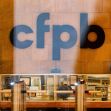As reported by Reuters, the U.S. Consumer Financial Protection Bureau (CFPB) announced on Thursday that "earned wage" advances on worker paychecks should be considered consumer loans under federal law. This move aims to establish federal guidelines for a rapidly expanding market.
In its proposed interpretive guidance, the CFPB stated that many paycheck advances fall under the Truth in Lending Act (TILA). This classification mandates that companies offering these advances must provide clear disclosures about finance charges and comply with other federal requirements.
CFPB Director Rohit Chopra emphasized that the agency's actions are designed to help wage earners understand the terms of their advances. "Our goal is to ensure workers know what they are getting into with these financial products," Chopra said in a statement. He added that greater transparency is expected to spur competition and potentially reduce consumer costs.
Currently, states like Nevada and Wisconsin license paycheck advance products and specify that they are not loans. Despite this, the CFPB expects companies to adhere to federal law. Unlike new regulations, the agency's interpretive rule does not undergo a lengthy approval process but is still subject to a public notice-and-comment period set to close next month.
The industry reaction to the CFPB's announcement has been mixed. Phil Goldfeder, CEO of the American Fintech Council, expressed disappointment with the proposal. "Simply put, EWA (earned wage access) is not a loan nor an 'advance' and should not be regulated as such," Goldfeder said in a statement.
Digital banking platforms like Chime have also entered the paycheck advance market. In May, Chime announced it would allow customers to access up to $500 of their wages interest-free before payday, without mandatory fees.
According to a CFPB report released on the same day, workers using paycheck advances take out an average of 27 such advances annually. The report highlights that employer-sponsored advances typically carry annual percentage rates (APRs) exceeding 100%. The number of transactions nearly doubled between 2021 and 2022, with more than 7 million workers borrowing approximately $22 billion.
The CFPB's proposed rule addresses concerns that many workers borrow at high interest rates and face mischaracterized fees. By classifying these advances as loans, the CFPB seeks to impose stricter disclosure requirements to protect consumers.
Thursday’s proposal has sparked a debate among lawmakers and industry stakeholders. Republican lawmakers have criticized the CFPB's use of interpretive guidance instead of formal rulemaking, which they argue bypasses the traditional regulatory process and limits judicial oversight.
A senior CFPB official indicated that the interpretive rule is part of the agency's broader effort to clarify existing laws without introducing new regulations. This approach is intended to provide immediate guidance while allowing for public feedback before finalizing the rule.






